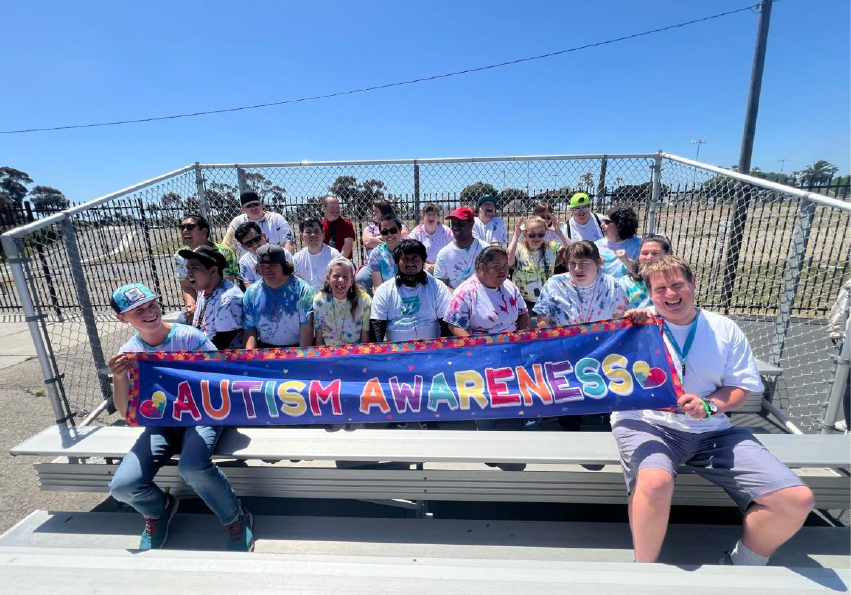Stop the Hate
Boys & Girls Clubs of Northwest San Diego offers youth a space of belonging and tools to be a positive force in their community
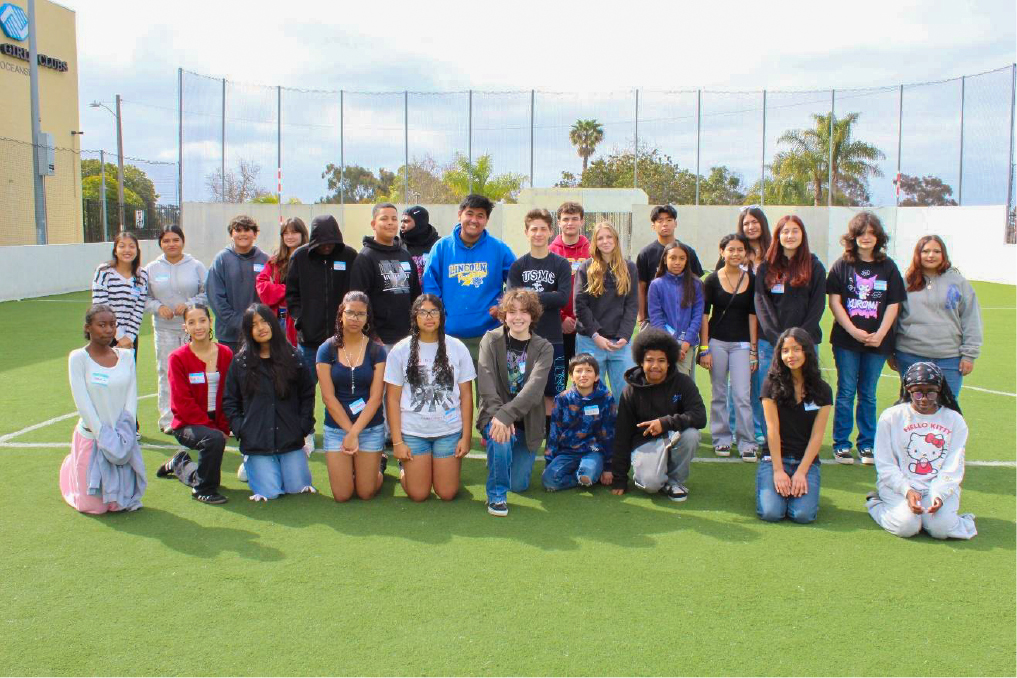
Change starts in the hearts and minds of children. This ethos is fully embraced by the Boys and Girls Club of Northwest San Diego (BGC), which for decades has served as a place of belonging for at-promise youth from Camp Pendleton and Oceanside to Del Mar and Carmel Valley. BGC serves more than 16,000 individuals annually through its after-school programs, camps, and other enrichment programs.
And while its programs have always championed leadership development, education, and life skills, the organization is now leveraging its role as a space for understanding and belonging to more explicitly tackle issues connected to hate and hate crimes.
In San Diego, reported hate crimes skyrocketed over the course of the COVID pandemic—jumping 65 percent between 2021 and 2022. The majority of incidents were race-based. During this time, BGC became an even more essential space for safety, support, and inclusion for children in under-resourced communities of North San Diego County. After receiving grant funding through California’s statewide Stop the Hate initiative, BGC was able to expand some of its core youth programs with anti-hate components, reaching thousands of young people across its eight North County club locations.
Rhonda Guaderrama, who serves as Vice President of Grants with BGC, believes this kind of curriculum is more important than ever:
“Many of our kids are BIPOC and low-income, and some are immigrants – they are feeling rattled by everything that is going on in the world.”
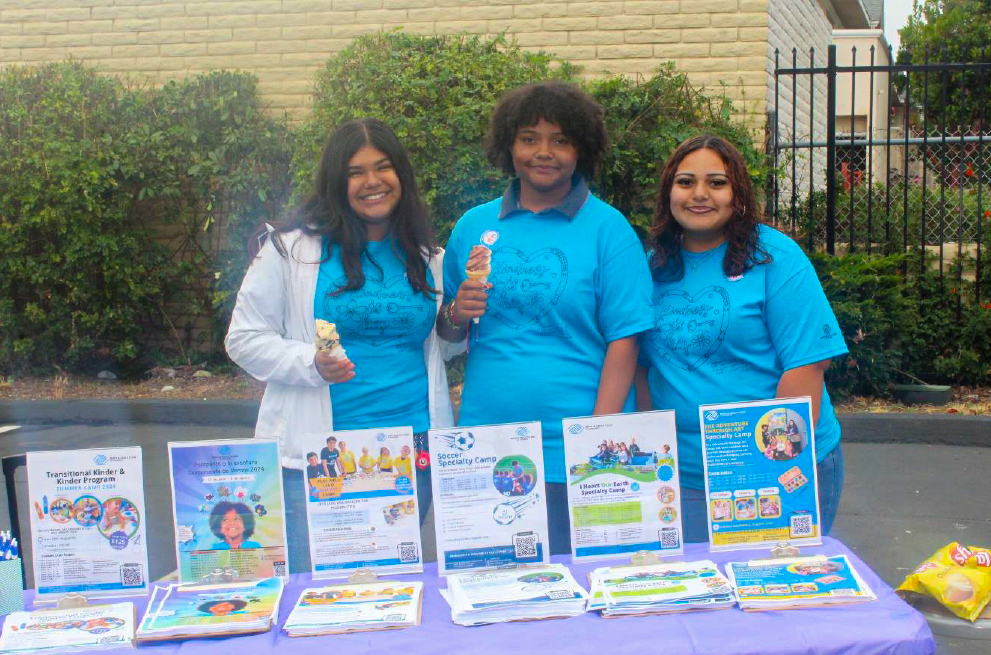
The impact that hate crimes and bias-based victimization can have on youth is substantial, including increased symptoms of trauma, higher risks for substance use, and higher rates of mental health issues. And because youth can be both victims and perpetrators, both in-person and online, effective engagement needs to help young people approach the issue from all angles.
When Guaderrama and her team conducted a survey among Club members, they were surprised to learn that even at a very young age, the children were aware of bias in themselves and others. For the BGC team, the goal was to infuse age-appropriate anti-bias and anti-hate concepts into existing programs—reaching young people at an early age, so that they become neither victims nor aggressors.
“They are absorbing everything,” noted Guaderrama. “They are deciding who they want to be as humans.”
Building the foundation to become caring community members
BGC’s Stop the Hate education and prevention curriculum focuses on creating an environment that embraces inclusion and diversity and makes prejudice, discrimination, and hate unwelcome and unacceptable. In particular, the organization’s Youth United program and annual Youth Symposium provide opportunities for young people to question their perceptions and reevaluate how their words and actions impact others. The Youth United curriculum is designed for youth in 5th through 12th grades to explore themes such as seeing what is special and unique in every individual; understanding our society’s diversity, recognizing bias and unfairness, and taking personal leadership to confront bias.
As part of this year’s Symposium, children participated in a dialogue with local law enforcement officers and signed on to a kindness pledge, among other activities designed to engage youth on how to be responsible, caring community members. The core of these efforts, according to Guaderrama, centers on giving young participants opportunities to think through how these issues play out in their own relationships and communities:
“They ask themselves, how are we the same and how are we different? And they see that mostly, we are the same!”
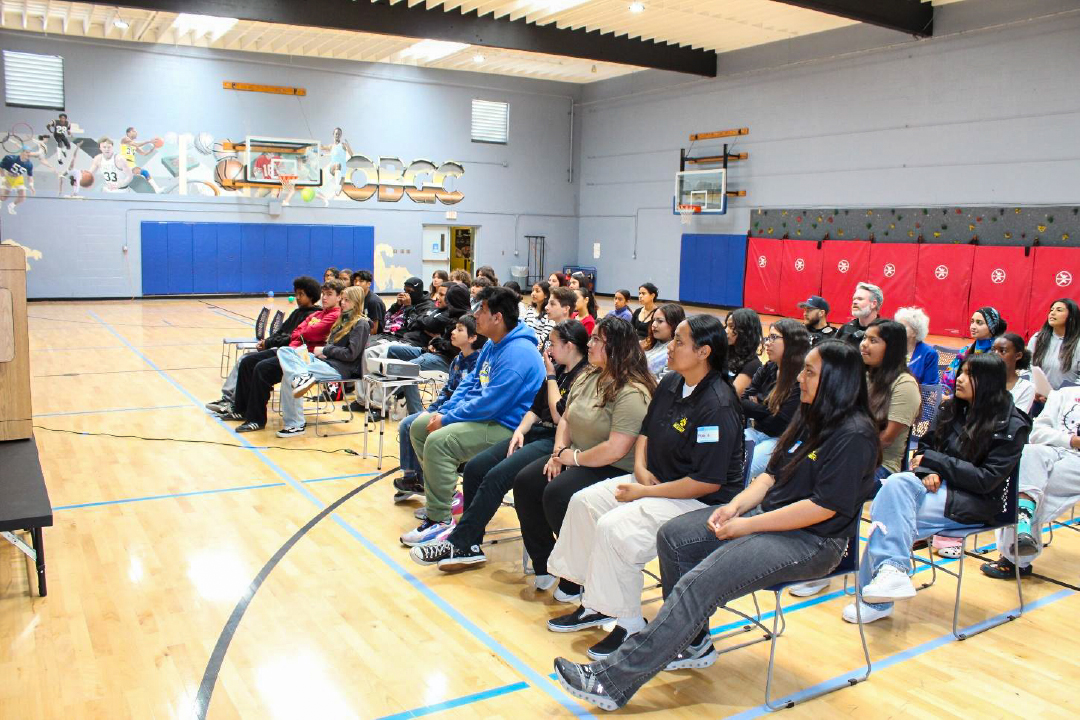
During the Teen Symposium, young people took part in activities that helped them grapple with issues of bias in their own lives and ways in which they might demonstrate leadership against unfairness. In one activity, participants examined a display of items placed on the ground, selected one, and shared with the group the significance behind their choice. A high school boy picked up the LGBTQ flag from among the items and opened up about his feelings. Although he did not identify as part of the community and came from a family that did not support it, he expressed deep admiration for his peers who openly embrace their identities. He shared how their bravery inspired him to connect with his sister, who has kept her identity hidden out of fear of their parents’ and others’ reactions. Motivated by the courage he witnessed, he resolved to voice his support for his sister, nurturing the hope that she might find the strength to be her true self both at home and within the wider community.
Beyond awareness, toward agency
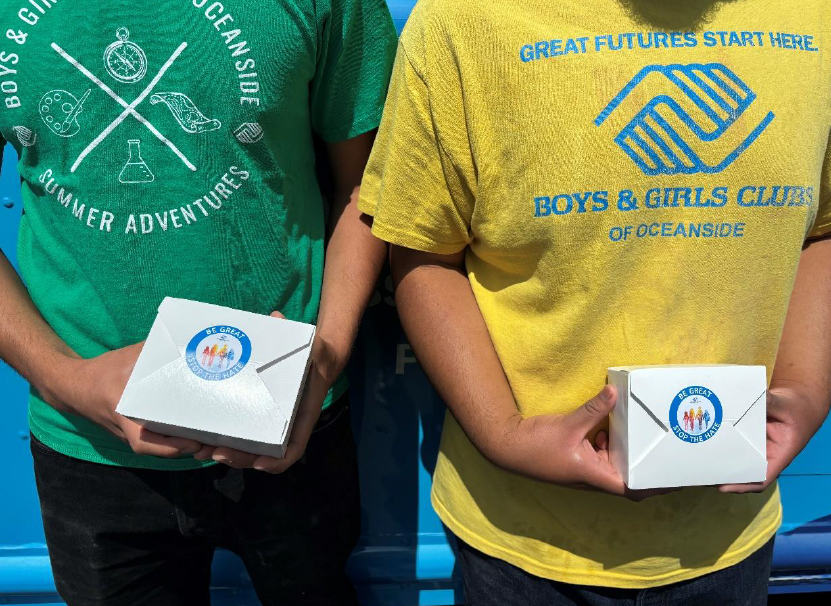
BGC also leveraged its mobile lunch program to extend the reach of its messaging beyond the young people who attend on-site club programs. The team developed half-page educational handouts to accompany hundreds of lunches delivered to food-insecure young people across the community of Oceanside for an entire summer. Written in both English and Spanish, the flyers reached 500 children and their families, providing accessible explanations of what constitutes a hate crime or act of hate, how to report crimes and/or receive support services, as well as local law enforcement contacts and non-law enforcement resources available.
Stop the Hate funding also allowed BCG to incorporate anti-hate education into its Real Options for Adults with Disabilities (ROADs) daytime enrichment program. This acutely underserved population is particularly vulnerable to hate crimes, including verbal harassment and sexual violence. With an expanded focus on hate crime prevention, ROADs participants gained exposure to tailored social and personal safety skills, including inter-relationship dynamics and boundary setting.
Across each of these initiatives, BGC is planting the seed for more in-depth conversations, moving children and young adults beyond awareness and toward agency.
“To them, it feels like being a tiny fish in a big sea. These programs give them a safe space to talk about what’s going on and how they are feeling,” shared Guaderrama.
The Boys and Girls Club of Northwest San Diego’s anti-hate curriculum equips young people with the tools to combat hate through their own actions, whether that be speaking up to a bully, offering to help a classmate that is being mistreated, or showing kindness to someone who is different from themselves.
And for Guaderrama and her team, every day is an opportunity to set the stage for young people to think critically about how they personally impact their peers and their communities:
“We know these attitudes are entrenched at a very young age, and so it’s never too early to start these conversations.”
